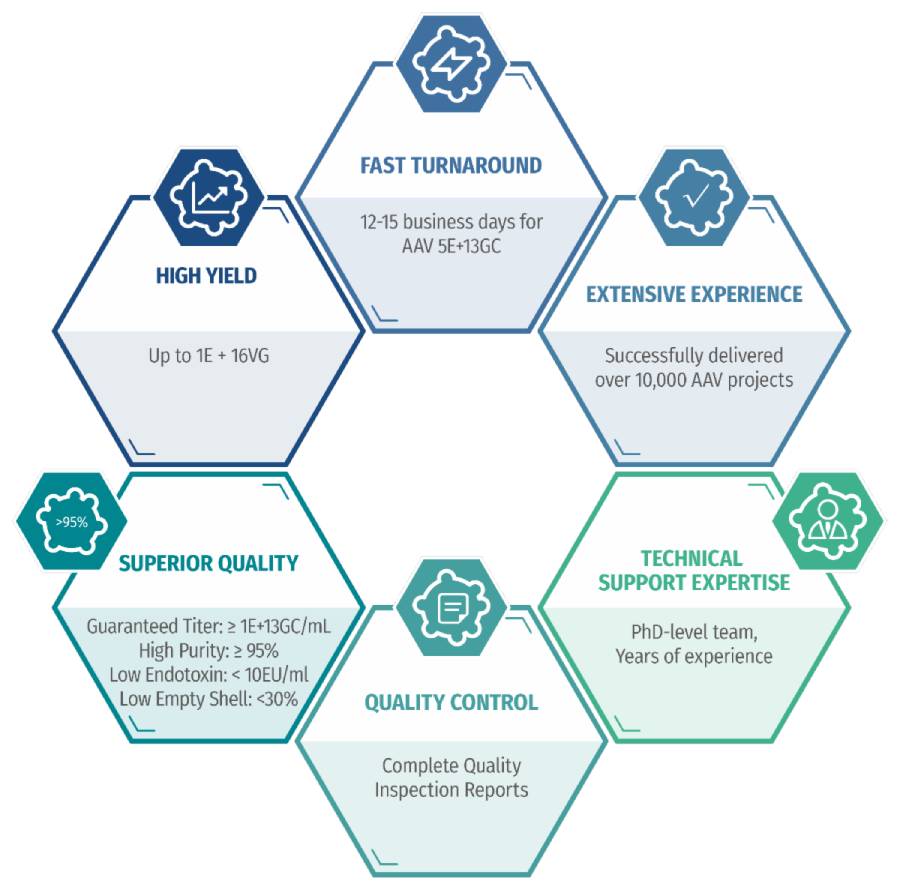Adeno-Associated Virus (AAV) is a non-pathogenic single stranded DNA virus with a genome size of 5 kb, which belongs to the Parvoviridae. AAV has not been associated with any human or animal disease, even though most humans (>70%) are seropositive for one or more serotypes. The capsid protein consists of three subunits, namely VP1, VP2, and VP3. There are two “T”-shaped terminal inverted terminal repeats (ITR) at both ends of the AAV genome, which are the origins for DNA replication and serve as the primary packaging signal. ITRs are the only cis-active sequences required for making rAAV vectors and the only AAV-encoded sequences present in AAV vectors
Several features of AAV position them as an exceptional experimental tool as well as an attractive candidate for genetic payload delivery in Gene and Cell Therapies. Notable features include:
 AAV are not currently known to cause any disease;
AAV are not currently known to cause any disease; AAV infection results in a very mild immune response;
AAV infection results in a very mild immune response; AAV are capable of infecting both dividing and non-dividing cells;
AAV are capable of infecting both dividing and non-dividing cells; recombinant AAV (rAAV) are capable of integrating a gene of interest (GOI) into a cells genome for prolonged and stable expression. In addition, differences in the capsid structure of various AAV serotypes bias infection rates across host cell-types, and provide a mechanism for a degree of cell type infection specificity.
recombinant AAV (rAAV) are capable of integrating a gene of interest (GOI) into a cells genome for prolonged and stable expression. In addition, differences in the capsid structure of various AAV serotypes bias infection rates across host cell-types, and provide a mechanism for a degree of cell type infection specificity.


